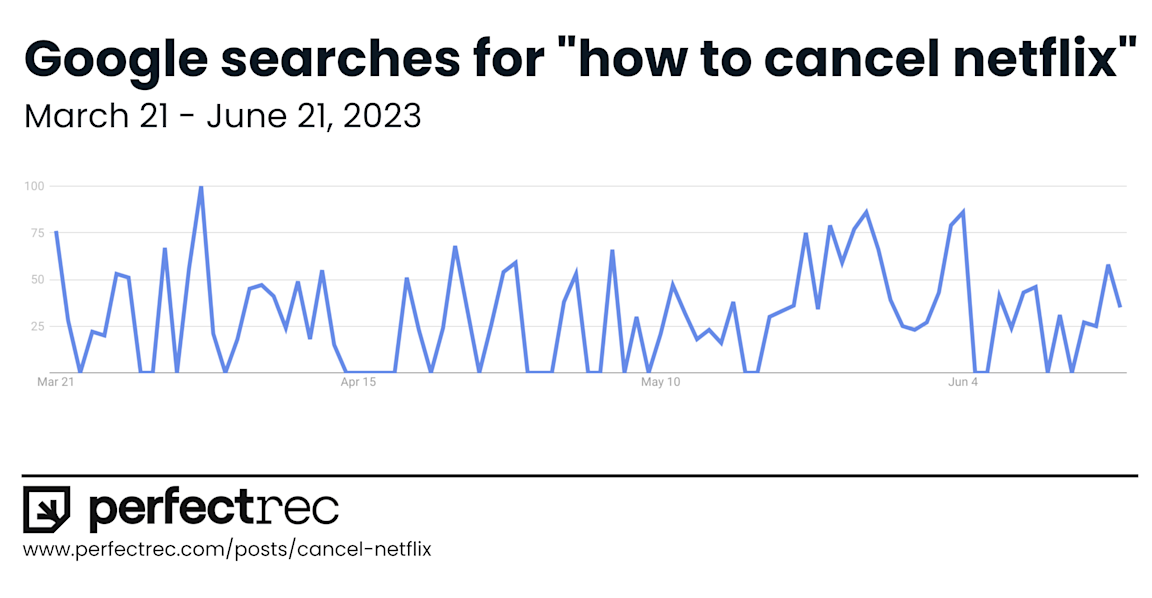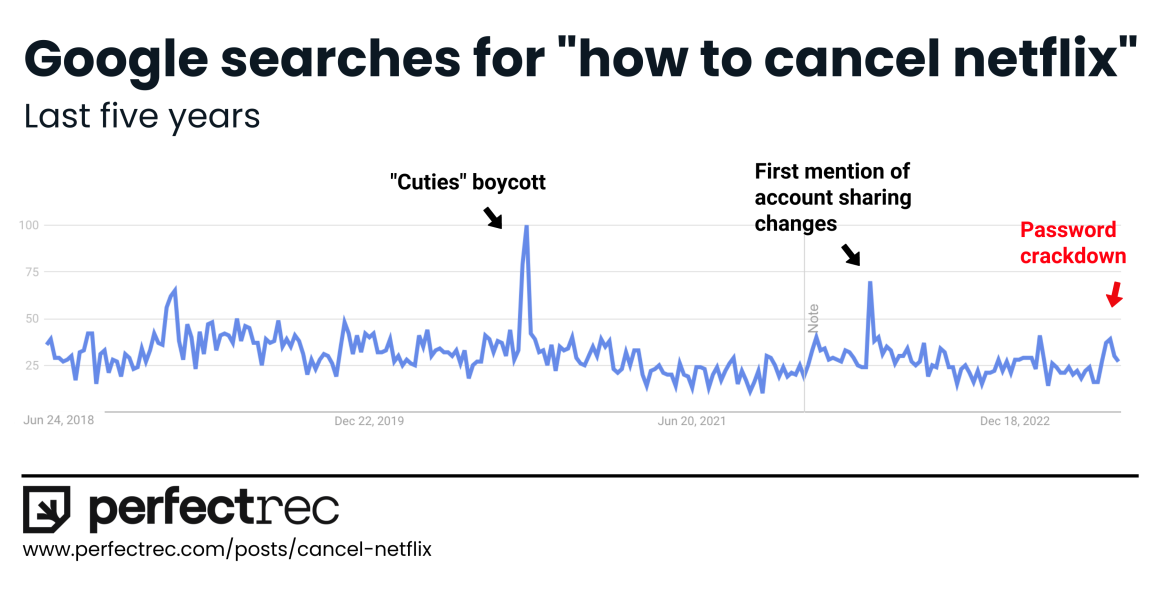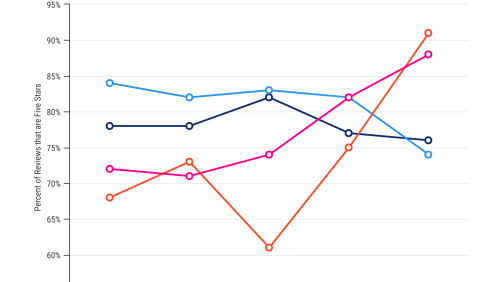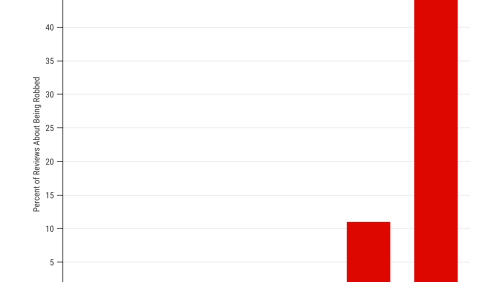Despite social media uproar, few looked to cancel Netflix after password crackdown


Key Takeaways
#CancelNetflix started trending on Twitter after the streaming giant began cracking down on password sharers in late May.
An analysis of Google Trends shows that searches for “how to cancel netflix” didn’t increase much in the days following the social media uproar.
When you look at the past five years of data, search volume for "how to cancel netflix" following the password crackdown last month was about the same as an average month in 2019.
There was one #CancelNetflix campaign that actually made a big impact. In 2020, blowback over the movie "Cuties" caused cancellation-related search volume to spike.
A month ago, Netflix launched its long-planned crackdown on password sharing in the United States. The streaming giant started emailing users who it suspected of sharing passwords outside of their home on May 23. The result was predictable: social media outrange. Users took to Twitter to announce they would be canceling their subscriptions under the hashtag #CancelNetflix. While the Twitter campaign succeeded in generating a lot of headlines, we were curious to learn if people were following through and cutting the cord on America’s biggest streaming service.
Netflix won’t report on the impact of their new password policy until their next earnings call in July, so we decided to take a look at Google Trends data to see if there was a surge in consumers trying to figure out how to cancel their accounts.
We looked at searches for the term “how to cancel netflix'' in the United States. This is a more specific search term than “cancel netflix,” which tends to pick up a lot of searches about Netflix canceling specific shows, which makes the data noisy . It also gets more search volume than other queries like "cancel netflix account," making it a more accurate measure of trends over time.
There wasn’t a big surge in searches for “how to cancel Netflix” following the password sharing crackdown
If you look at the past ninety days of search data, there’s not much of a trend in searches for the term “how to cancel netflix.”

If you zoom out to the past year, you can see that the number of people searching for information on how to cancel their Netflix subscription did jump a bit at the end of May, but that increase was modest compared to the 12 month average.

If you zoom out even further and look at the past five years, you can see the surge in #CancelNetflix tweets following the password sharing crackdown doesn't register as much of an outlier. Searches for the term “how to cancel netflix” in late May peaked at around the same level as an average month in 2019. In fact, more people searched for "how to cancel Netflix" following the first discussion of a password sharing crackdown in April, 2022 than did when the policy was actually implemented last month.

Not only is there not much of a surge in interest for Netflix cancellations, but the media research firm Antenna, which monitors Netflix sign ups, found that the streaming service saw new account creation in the US jump to the highest level in four years following the password crackdown.
Some #CancelNetflix campaigns are successful
The password crackdown and subsequent #CancelNetflix Twitter campaign didn’t drive a big jump in Netflix cancelation searches, but we can see some big spikes in cancelation searches, like in September 2020. What caused that?
The Cuties boycott.
On September 10th, 2020 Netflix released the film Cuties, which was criticized for sexualizing children. The following day, #CancelNetflix started trending on Twitter, and unlike the password sharing crackdown, this time the Twitter trend moved beyond the social network and showed up in search activity and a record number of account cancellations, according to Variety.
Methodology
We analyzed Google Trends data for the search term "how to cancel netflix" in the United States. We looked at the past 90 days, 12 months and 5 years.
We used the search term "how to cancel netflix" since it has higher search volume than "cancel netflix account" and is less noisy than "cancel netflix," which frequently picks up searches about specific shows being canceled.
Google Trends data measures relative search interest over the given time period in the specified region. A value of 100 is the peak popularity for the term. A value of 50 means that the term is half as popular.
Other recommended articles

Samsung Galaxy S24 Customer Satisfaction Tracker

Samsung’s Galaxy S24 lineup tops the iPhone in customer satisfaction for the first time

45% of the reviews at the Oakland In-N-Out in 2023 mentioned being robbed

MAP - The gas stations where tourists are regularly robbed near Oakland International Airport
Stay up to date on new products
Get occasional updates about new product releases, interesting product news, and exciting PerfectRec features. No spam. We never share your email.
